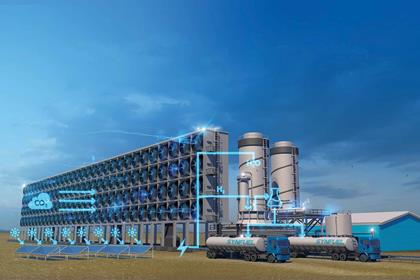Synthetic petrol is on its way
The concept of fuel for your bike that doesn’t drain our dwindling oil reserves and offsets its C02 emissions with its very production is closer than we think.
For decades, boffins have been trying to work out ways to synthesize petrol and diesel, but with recent strides by Ducati owners Audi and tech giants Bosch, synfuels could hit our pumps within the next decade.
![]()
The theory is to harness our natural resources to make petrol and diesel and be able to produce it on an industrial scale so that prices can match current fuel costs.
‘It isn’t dependent on crude oil’
“The new fuel has many advantages. It isn’t dependent on crude oil, it is compatible with the existing infrastructure and it offers the prospect of a closed carbon cycle,” says Reiner Mangold, head of sustainable product development at Audi.
The plan would involve extracting hydrogen from water through electrolysis. The hydrogen is processed in two reactors, where it is combined with captured carbon dioxide in a chemical process to create the fuel.
Audi say there are two ways carbon can be captured: from factory emissions (there is a German/EU initiative for this to happen) or sourced from the air.
Using renewable energy
Of course, both parts of these require a huge amount of energy to achieve, but Audi and Bosch’s plans involve a renewable energy, such as solar or hydroelectric, to power the process. They say renewable electricity can make the process carbon neutral.
And while it might seem like science fiction, it is getting closer. Earlier this year, Audi produced their first synthetic petrol, albeit using organic biomass as the base in a two-step process.
In the first step, Global Bioenergies in France produced a gaseous isobutene in a plant. In the second step, the Fraunhofer Center for Chemical Biotechnological Processes in Leuna used additional hydrogen to transform it into isooctane.
Environmental benefits
Audi claim their e-Benzin is impressive. The fuel is free of sulphur and benzene and is especially low in pollutants when it burns. The next step is to do the same with hydrogen as the base
![]()
This fuel then has the option to be used on its own or blended into fossil fuels. When combined with the potential carbon-free production process, it means internal combustion could be part of the environmental solution rather than the problem.
Audi’s Swiss synthetic diesel production plant is being built at the moment. It has the capacity to produce 400,000 litres a year and is powered by hydroelectricity from a nearby dam. Mass production of petrol is the next obvious step.
Have a browse for your next bike on MCN Bikes For Sale website.


